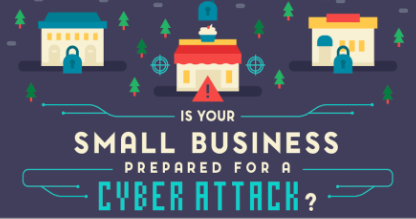Business Loan Scams – Borrowers Beware! Part 1 of 2

By Debbie Gregory.
VAMBOA, the Veterans and Military Business Owners Association, believes that knowledge is power and will protect you. For this reason, we are bringing you this two-part article mini- series on Business Loan Scams. Please be cautious.
As the owner of a small Veteran Owned Business, you need to be on the alert for business scams, especially those related to access to capital and loans. There have been more scams than ever with the growth of online alternative loans that allow small business owners to access the funds they need. Unfortunately, this creates opportunities for Internet scammers. Various surveys have found that almost seventy percent of small businesses feel there is a greater risk of scams now compared to a few years ago. In 2016, marketplace scams accounted for the loss of $50 billion dollars alone.
Many online and legitimate lenders have been invaluable to small business owners. However, many hackers are running business loan scams preying on the needs of small business owners for quick and affordable capital. They attempt to steal your money, personal information, business information by pretending to be legitimate lenders or small business loan brokers. The good news is that there are ways to identify these business loan scams and avoid them. If you should fall victim to a scam, you should know how to report it.
Most scammers will attempt to contact you online via email, phone, texts, direct mail, websites or search engine ads. You must be cautious whenever anyone asks for money, personal information or your business information. Below are a list of business scams to avoid when applying for financing:
- Advance Fee Scams: This is when an individual or company promises easy access to low-cost debt in exchange for an upfront payment. It will include terms such as “zero interest, no credit or bad credit works, no fees, etc.” The scammer may reference the upfront fee as a “processing fee” or a “one-time fee”. The goal of the scammer is to get your money before approving you for this likely fictitious loan.
Advance Fee Scams are one of the most common and popular scams. They entice the borrower by promising that anyone can qualify. Most legitimate lenders have requirements. The lower one’s credit score, the higher interest they will have to pay in the real world. Often legitimate lenders do charge some upfront fees such as application fees or fees to do your credit report so you must be careful.
- Peer Lending Scams: Have you ever seen a message on Craigslist, FB Messenger, Reddit or other places that says: “Low-interest loans up to 100K. Low credit scores and bankruptcy is not a problem”? Often, these are scams. There are credible peer-to-peer lenders with thousands of investors who pool together and purchase loans or parts of loans that meet their criteria. Instead of a bank, think of it as dozens of lenders working collectively.
Typical peer lending scams often resemble advance fee scams. These peer lending scammers will also ask for some type of upfront fee or they might also be after sensitive personal information. Beware because they can also steal your identity. Never ever use a money wiring services for a business loan and never make any payment in advance.
- Funding Kit Scams: Some unscrupulous online loan providers want you to believe that obtaining a business loan is so complicated, you need to pay them to walk you through the process. This is a scam! The scammers might offer offers to obtain government grants or inside tips or tricks and offer to provide you information for a fee.
All of the information that you need to obtain a loan is easily found online and there are not any fees to use this information. When you see words such as “free” and government grants”, it is time to run for the heels. If you have questions that you cannot find online, ethical, and real lenders are more than happy to answer these questions without charging you a fee. If anyone asks you to pay for information to obtain a grant or loan, it is likely they are trying to scam you.
- Credit Repair Scams: Have you ever heard offers to increase or improve your credit score by at least 100 points in a short timeframe. Or perhaps it the offer is to wipe out your bad credit, etc. When you are trying to obtain a small business loan, your credit history is the most important part of your financial record and used by lenders to make qualifying decisions.
You do not need to pay anyone if you want to challenge or dispute something on your credit report. You can do this yourself and it is free. Be wary of anyone wanting to charge you upfront fees to improve and remove negative information from your credit report. Do not feel pressured and keep in mind that there are a multitude of legitimate lenders willing to work with you even if you have a low credit number or a brief credit history.
VAMBOA hopes that our small veteran and military business owners have enjoyed this first article. Stay tuned for Part 2 with more Business Loan Scams. We also want to invite you to become a member of VAMBOA. There are not any fees or dues and you can use our seal on your collateral and website. If you want to join, please register here: https://vamboa.org/member-registration/













